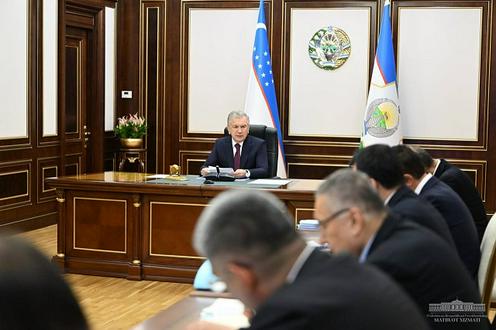According to Uzbek analysts, the country's economic growth is expected to reach at least 6% by the end of this year. Additionally, the share of investments in the Gross Domestic Product (GDP) is projected to exceed 33%, while exports are anticipated to increase by approximately 19%. These figures were announced during a meeting chaired by President Shavkat Mirziyoyev, where key macroeconomic indicators were discussed.
Officials highlighted the foundations for these positive forecasts. Despite global challenges, Uzbekistan's economy grew by 6.6% in the first nine months of 2024, with industrial growth at 7%. The country's foreign exchange reserves surpassed $40 billion for the first time, and deposits in the national currency increased by 50%.
International rating agencies have also positively assessed the stability of the republic's rating. This factor, along with foreign investor confidence, enabled the placement of $4 billion in Eurobonds.
«Overall, the International Monetary Fund, World Bank, and Asian Development Bank confirm that due to active investment policies and reforms, Uzbekistan will continue to maintain sustainable economic growth,» stated President Mirziyoyev's press service.
However, it was emphasized that the country needs to increase the share of high value-added products. Consequently, relevant ministries and departments have been tasked with developing a three-year program to extend the production chain for each industry sector.
The meeting discussed that improving tax administration is the only way to increase budget revenues. The President noted that the state should not interfere with entrepreneurial activities. He suggested that reforms should be implemented through process digitalization, artificial intelligence technologies, and the legalization of the shadow economy.
Economic plans for 2025 were also reviewed during the meeting. To maintain GDP growth, modern investment project launches, development of transport and logistics, information technology, agricultural and financial services were deemed necessary.
Furthermore, 78 districts of the republic will transition to self-financing of budget expenditures. To facilitate this, land tax, property tax, and turnover tax will remain fully in local budgets, while 50% of income tax will be retained locally.
Analysts also predicted a 20% increase in funds allocated for education and healthcare development in 2025.
Following the meeting, Deputy Minister of Economy and Finance Ilhom Norkulov told journalists that by 2030, the GDP is expected to reach $200 million, exceeding initial forecasts. He added that GDP per capita is projected to reach $5,000 by the same time. The government also aims to keep inflation at 7% next year, with plans to further reduce it to 5% by 2027, Norkulov concluded.










